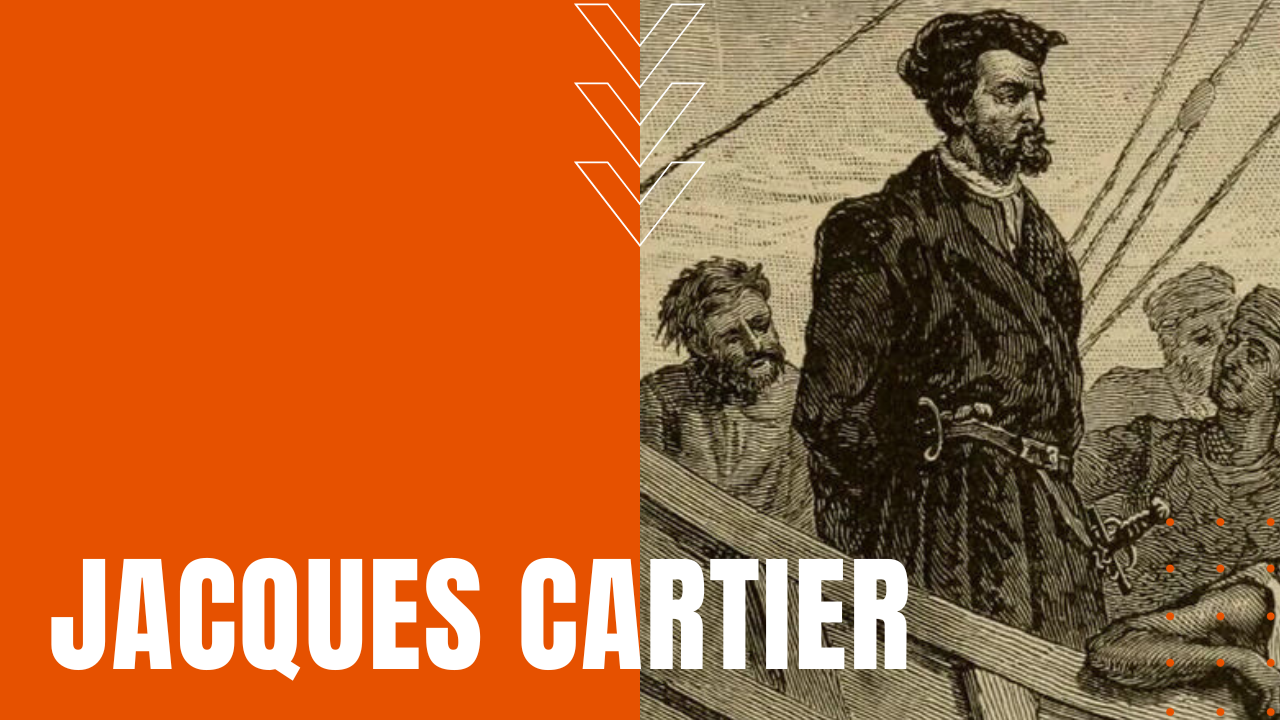Jacques Cartier

Born in 1491 Saint-Malo France, Jacques Cartier learned to sail as a young man, most likely voyaging to Brazil and Newfoundland under the command of Italian explorer Giovanni da Verrazzano before Cartier’s historic three voyages to the New World. Two years after the Duchy of Brittany was made part of France in the Edict of Union, in 1534, King Francis I commissioned Cartier on an expedition to the “northern islands,” as the east coast of North America was then known, with the objective finding a northwest passage to the lucrative trade markets of Asia, setting sail in April with two ships and a crew of 61 men.
Names Canada
Exploring the west coast of Newfoundland, the St. Lawrence River and Prince Edward Island—giving rise to the name Canada when he misinterpreted the Iroquois word for settlement—Cartier returned to France with two captured Native Americans, minus any fresh knowledge of the still-elusive Northwest Passage. The following year, the French king sent Cartier back across the Atlantic—this time with three ships and 110 men—employing his two captured Native Americans as guides for a more in-depth exploration of today’s eastern coast of Canada, sailing up the St. Lawrence River as far as present-day Quebec, where they established a base camp to wait out what would prove to be a bitter winter of deprivation and death.
A Costly Winter
By springtime, 25 member of Cartier’s crew had died from scurvy, while the once friendly Iroquois People turned against the French explorer when they concluded that his sole intention was to lay claim to their native lands. To deepen the bad blood with local Iroquois, Cartier kidnapped two chiefs before sailing home to France. Delayed by war in Europe until 1541, King Francis funded Cartier’s third voyage to the New World, two months in advance of nobleman Jean-François Roberval, who was charged with establishing a permanent colony in the northern islands.
Yet Another Brutal Winter
Arriving at present-day Quebec in August of that same year, Cartier and his crew endured another brutal winter, and when Roberval failed to show up at their planned rendezvous site, Cartier set sail for France with what he thought was a valuable cache of gold and diamonds—a bounty that later proved to be nothing more than worthless minerals. Encountering Roberval during a stop in Newfoundland, Cartier defied Roberval’s order to return to Quebec, instead setting sail for home under the cover of night. The decision ended Cartier’s time as a French explorer, spending the rest of his life at his estate in Saint-Malo before passing away on September 1, 1557, making Jacques Cartier, an important trail blazer during the Age of Exploration.
